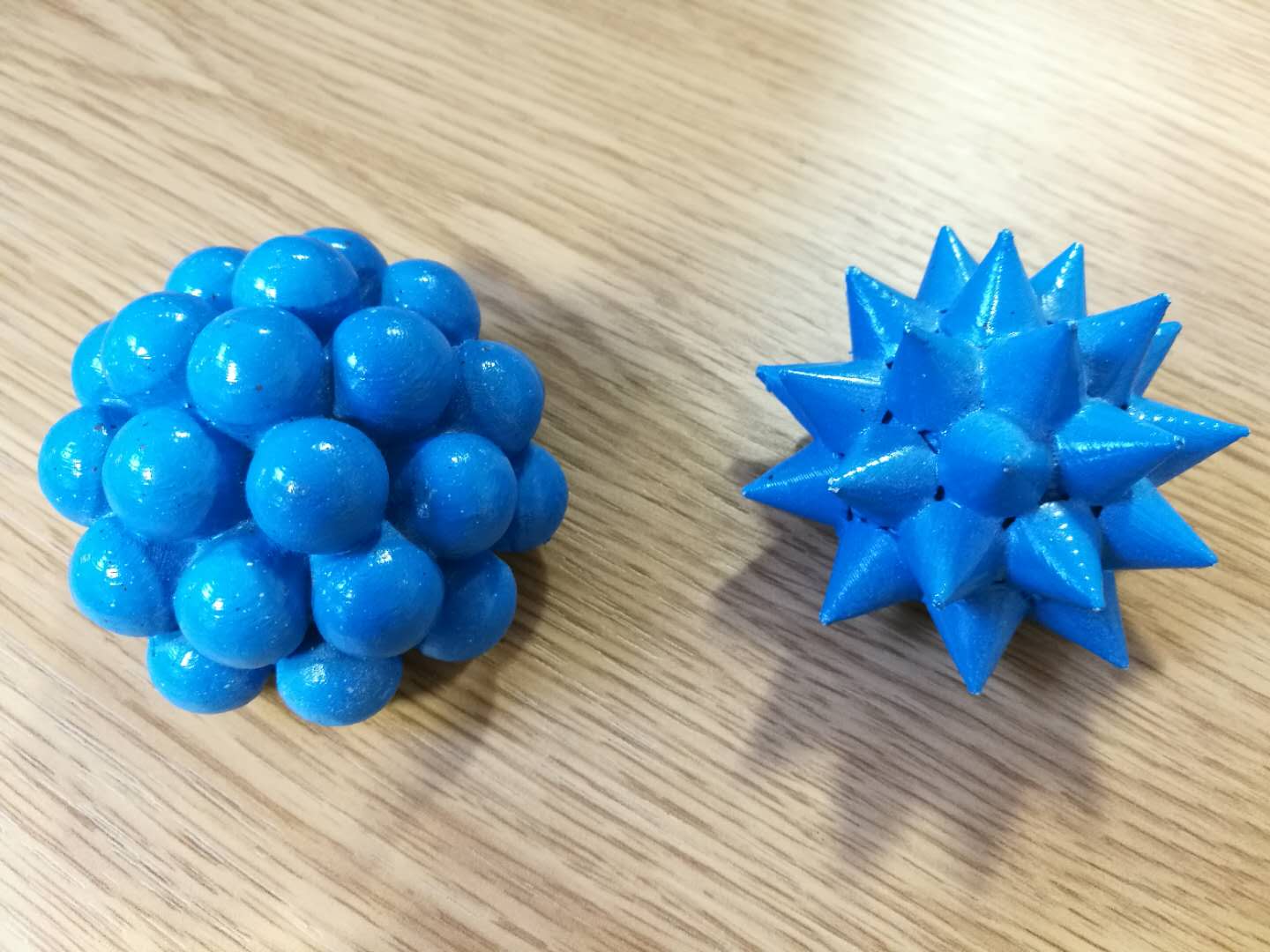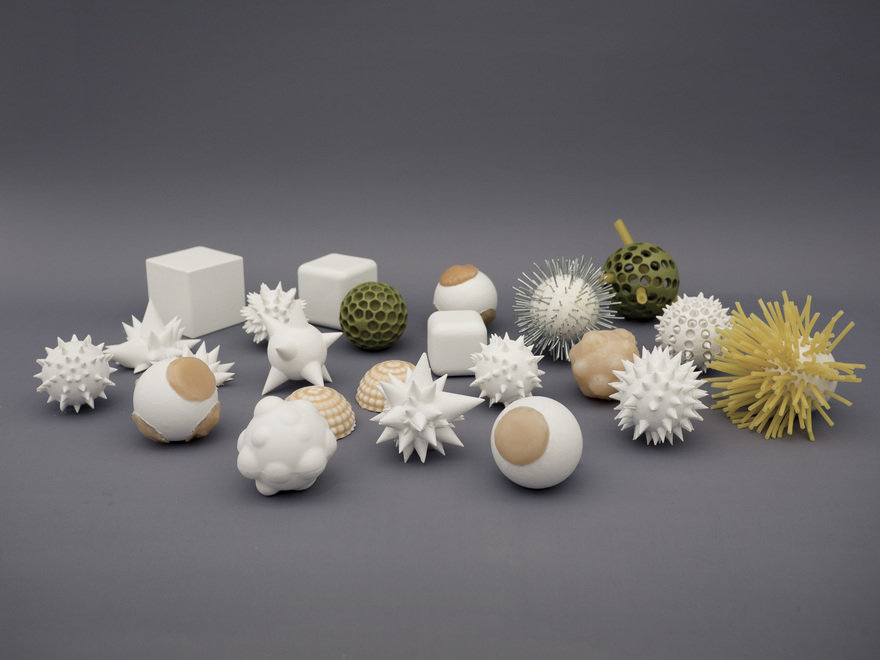
The “BK” and the multisensory experience
BK is abbreviation of “Bouba-kiki”, which represents two types of shapes: shape “Bouba” and shape “Kiki”. They are originally look like this:

Make a guess about which label belongs to which shape
(Don’t google before making a guess!). I have greater than 95% chance of guessing your answer correct. If I’m wrong, unfortunately or fortunately, you are one of the less than 5% outliers in the whole population! We believe we can use these shapes to inform design of tangible digital devices.
Tangible BK
The above example shows crossmodal correlation exists between 2D-shape recognition and phonemes.
This perceptual correlation has also been found between 3D-shapes and the phonemes of “Bouba” and “Kiki” alike, as shown in the figure below.

How this can be utilised in design?
How can we leverage such a perceptual regularity to benefit our life?
An interesting application is to build a perceptual common ground, for instance, the tangible pain assessment tool. This project uses tangible “Bouba-kiki” shapes to present “a range of expressive possibilities, allowing young children to communicate qualitative information that they typically are unable to communicate due to limitations in their linguistic capacity.”

(This figure is adopted from the core77.)
Shape-change BK robot
In our research we aim to empirically investigate emotional states that people can perceive based on the transition between tangible “Bouba” and “Kiki”.
Our research seeks to discover how people understand the affordances that shape-change device, interfaces and robots provide, both physically and psychologically.
We built a pneumatically actuated robot, the BK robot, and control the size, speed, and frequency of the change between the “Bouba” and “Kiki”.
BK for fun: augment heart beat
This little bot feels your heart and synchronises its beat with you.
Next step:
-
Understanding the effect of shape-transformation on emotional states, so that:
-
a. Develop a wearable shape-change skin for robot and human
-
b. Explore how this shape-change mechanism can be applied to Human-human and Human-robot interaction (HHI and HRI)